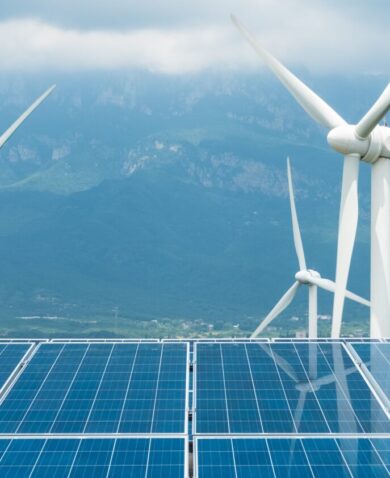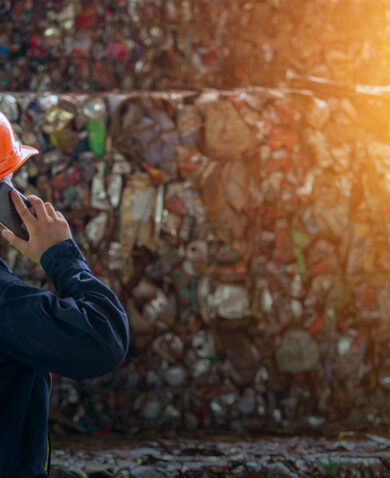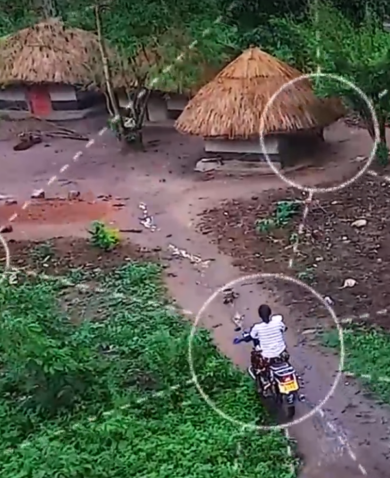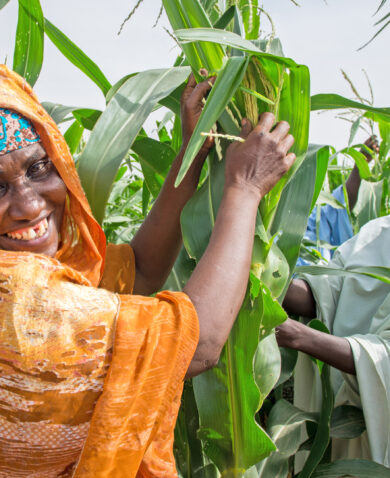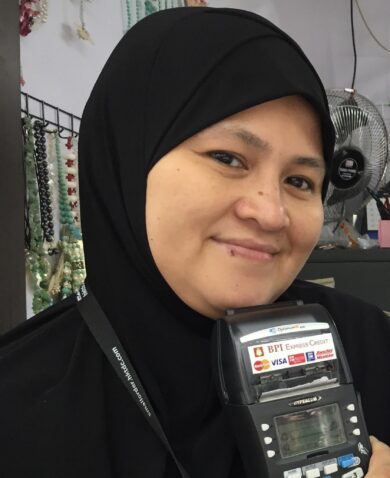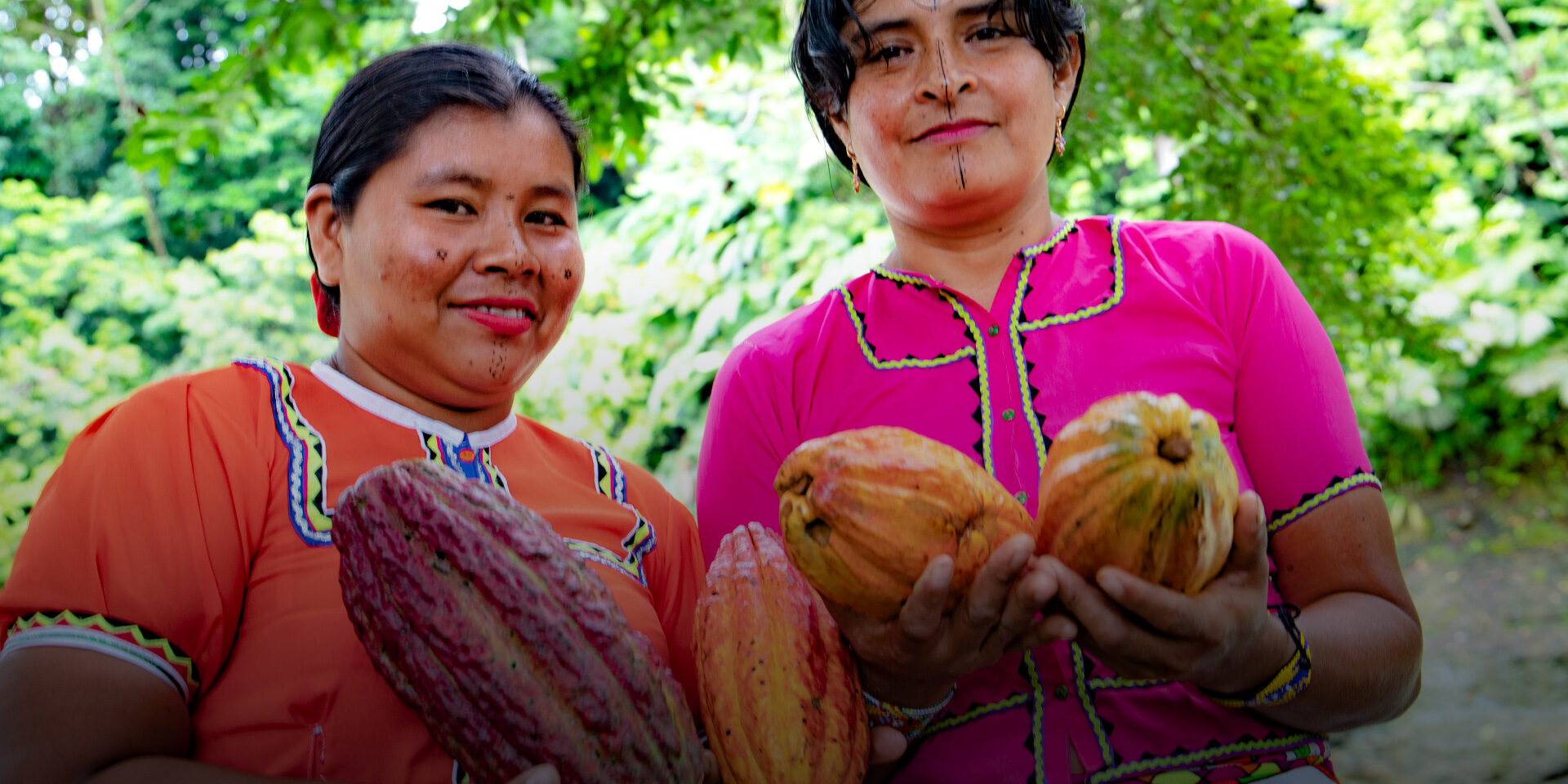
3 Building Blocks for Mobilizing Inclusive Climate Finance
February 2, 2022 | 5 Minute ReadDuring a time when the private sector acknowledges the economic impact of climate change, international development partners must commit to easing bottlenecks that prevent corporate participation from mobilizing towards climate solutions. These building blocks highlight methods to incentivize private sector investment in inclusive climate action.
The private sector, recognizing the economic threat and global calls to climate action, has mobilized corporate pledges to avert climate disaster and bridge the nearly $4 trillion financing gap for climate financing by 2030. At the United Nations Climate Change Conference of the Parties (COP26), nearly 500 global financial services firms agreed to align $130 trillion – some 40% of the world’s financial assets – with the climate goals formed in the Paris Agreement, including limiting global warming to 1.5 degrees Celsius. Public and private actors also joined for historic commitments such as the $1.7 billion pledge in support of Indigenous Peoples and local communities. While high-value commitments are regular outputs of COP, it is imperative for public and private actors to coalesce around inclusive climate financing and action addressing climate concerns of communities most affected by climate change.
International development partners should commit to easing bottlenecks that prevent private sector participation from helping mobilize capital towards enduring climate solutions. With decades of experience delivering sustainable and locally managed climate mitigation and adaptation projects in emerging markets, the development sector is uniquely positioned to support private finance in navigating the hurdles of identifying, scaling, and realizing climate-resilient portfolios. The following building blocks highlight key entry points for the international development community to incentivize private sector participation and investment in inclusive climate action: 1) building capacity for scalable solutions; 2) enabling inclusive and locally led solutions; and 3) supporting global coordination for sustainable impact.
1.Building Capacity for Scalable Climate Solutions
Small and medium enterprises (SMEs) comprise 90% of businesses around the world, employ 50% of the global workforce, and represent more than 40% of gross domestic products (GDPs) of developing economies. While SMEs play a vital economic role, they are often precluded from accessing the catalytic financing essential for full potential. This is largely due to the size and complexity of available financing. The development community can work to bridge this gap by building SMEs’ capacity and early-stage innovations to reduce perceived investment risk, increase attractiveness to private investors, and provide them with a clearer pathway and tools to become catalysts for sustainable climate solutions. This could include capacity building via business development services that increase bankability, first-loss guarantees that reduce risk, co-creation of innovative enterprise-driven solutions, or facilitating linkages to new investment sources.
The $30 million Land Innovation Fund for Sustainable Livelihoods, established with an initial contribution from Cargill and managed by Chemonics, supports innovations that achieve higher productivity through sustainable practices, facilitating consolidated networks and resources to promote and inform sector-wide transformation. Among other investments, the Fund supports AgTech Garage in Brazil to promote connections among agribusinesses, startups, producers, investors, universities, and other stakeholders in Brazil’s entrepreneurial ecosystem. This fosters technological solutions that accelerate innovative, economically viable options for soy farmers in critical biomes in South America as alternatives to converting biologically significant forests and other native vegetation. Through catalytic investments, the Fund mobilizes an inclusive ecosystem of local and international stakeholders to design, pilot, and scale climate-smart innovations that achieve greater agricultural productivity and economic resilience.
2.Enabling Inclusive and Locally Led Solutions
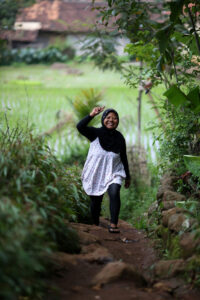
Underrepresented social groups often lack agency and decision-making power for large-scale climate financing, with proximity to natural resources simultaneously increasing vulnerability of women, youth, and Indigenous Peoples to climate change. Indigenous Peoples protect an estimated 80% of global biodiversity, but have received less than 1% of total development assistance funding for climate change adaptation and mitigation in the past decade. Women continue to dominate agricultural food production without equitable financial benefit or ownership of land resources and represent over 80% of the world’s climate refugees. Development practitioners are well-positioned to help uncover opportunities and close representation gaps essential to effective climate financing. This will in turn operationalize and localize high-value climate-smart investment commitments with communities “doing the work” to help transfer Indigenous and local conservation best practices.
Building on the Biodiversity-Reduced Emissions from Deforestation and Forest Degradation (BioREDD+) Program, begun in 2012, and continuing under the Paramos and Forests Activity, USAID has assisted Colombia in becoming an international leader in market-based REDD+. The Activity has helped grow the capacity of 19 Afro-Colombian and Indigenous communities to successfully implement eight REDD+ projects, stimulate private investment in new REDD+ initiatives, and share lessons learned with new communities. The USAID Bangladesh Ecosystems/Protibesh Activity is connecting locally-led co-management structures charged with natural resource governance with private firms and financial institutions with green corporate social responsibility funds to develop market-based, eco-friendly enterprises. Development partners’ institutional relationships and convening power offer opportunities to bridge the gap and incentivize collaboration between private sector partners and local communities, manifesting key components of the Alliance for Financial Inclusion’s Sharm El Sheikh Accord: Financial Inclusion, Climate Change and Green Finance.
3. Supporting Global Coordination for Sustainable Impact
The Convergence State of Blended Finance Report 2021 posits one of the most important lessons learned in mobilizing public and private finance in emerging markets is the need for a cohesive global approach that permits open dialogue on risks, opportunities, best practices, and lessons learned. While Convergence calls for standardization and simplification to support proven and replicable blended finance structures, this becomes an even greater challenge in the absence of attainable and comparable data and impact metrics. For almost 70% of transactions launched between 2018-20 recorded in the Convergence database, they could not identify a public-facing impact reporting methodology. This begs the question not only how to build upon successful climate resilience approaches without sufficient data to demonstrate effectiveness or scalability, but also how we expect to attract the level of private investment needed without adequate evidence for financial returns and social and ecological co-benefits.
The Small Enterprise Assistance Fund is taking an innovative approach to tackle this challenge by developing a climate resilience scorecard, which assesses SME challenges and implementation capabilities to provide a comprehensive snapshot of areas in which a company can make gains in environmental impact. The scorecard includes standardized climate metric tools that industry can leverage to drive performance and optimize value for SME climate adaptation and resiliency plans and portfolios. The World Resources Institute, with the Bezos Earth Fund, is acknowledging the cross-cutting nature of reaching net-zero emissions and working to develop a Systems Change Lab that will join forces with leading data providers to build an open-data platform, tracking progress across the broader climate ecosystem. This platform recognizes the complex and multifaceted nature of protecting the planet while improving people’s livelihoods and aims to monitor systems change globally, identify key drivers, share lessons learned, and campaign for systems change where it’s needed most.
The development community has a strong role to play in supporting innovations, such as the Small Enterprise Assistance Fund and World Resources Institute examples shared above. Not only by serving as effective stewards of reliable data collection across portfolios but also by ensuring data can be adequately leveraged for informed climate decision-making. The joint USAID and National Aeronautics and Space Administration (NASA) SERVIR initiative, implemented by Chemonics, is leveraging science, satellites, and information technology to put critical climate resilience and land use data in the hands of decision-makers in developing countries who are empowered to act locally on climate-sensitive issues such as natural disasters, agriculture, water, and ecosystem use.
The steps needed to achieve global climate action goals are vast and multifaceted, and these building blocks represent an opening for broader discussion and action across the ecosystem of climate actors. With estimates suggesting increases of at least 590% in annual climate finance may be required to meet internationally agreed upon climate objectives by 2030, international development practitioners have a critical role to play in contributing to a whole-of-ecosystem approach for maximizing sustainable development impact and achieving global climate action goals. Chemonics’ recently launched Climate Group, for example, is a step forward in the Chemonics’ journey to partner with people and countries around the globe to create a positive and lasting impact against climate change.
Banner image Caption: Mutata’s Emberas indigenous women, who participated in a trip to France to learn about Gourmet Chocolate preparations. Photo by: Mario González.
Vertical image caption: A woman waves surrounded by greenery. Photo by: Josh Estey for the USAID Indonesia Program Representasi (ProRep) photo collection.
Posts on the blog represent the views of the authors and do not necessarily represent the views of Chemonics.




